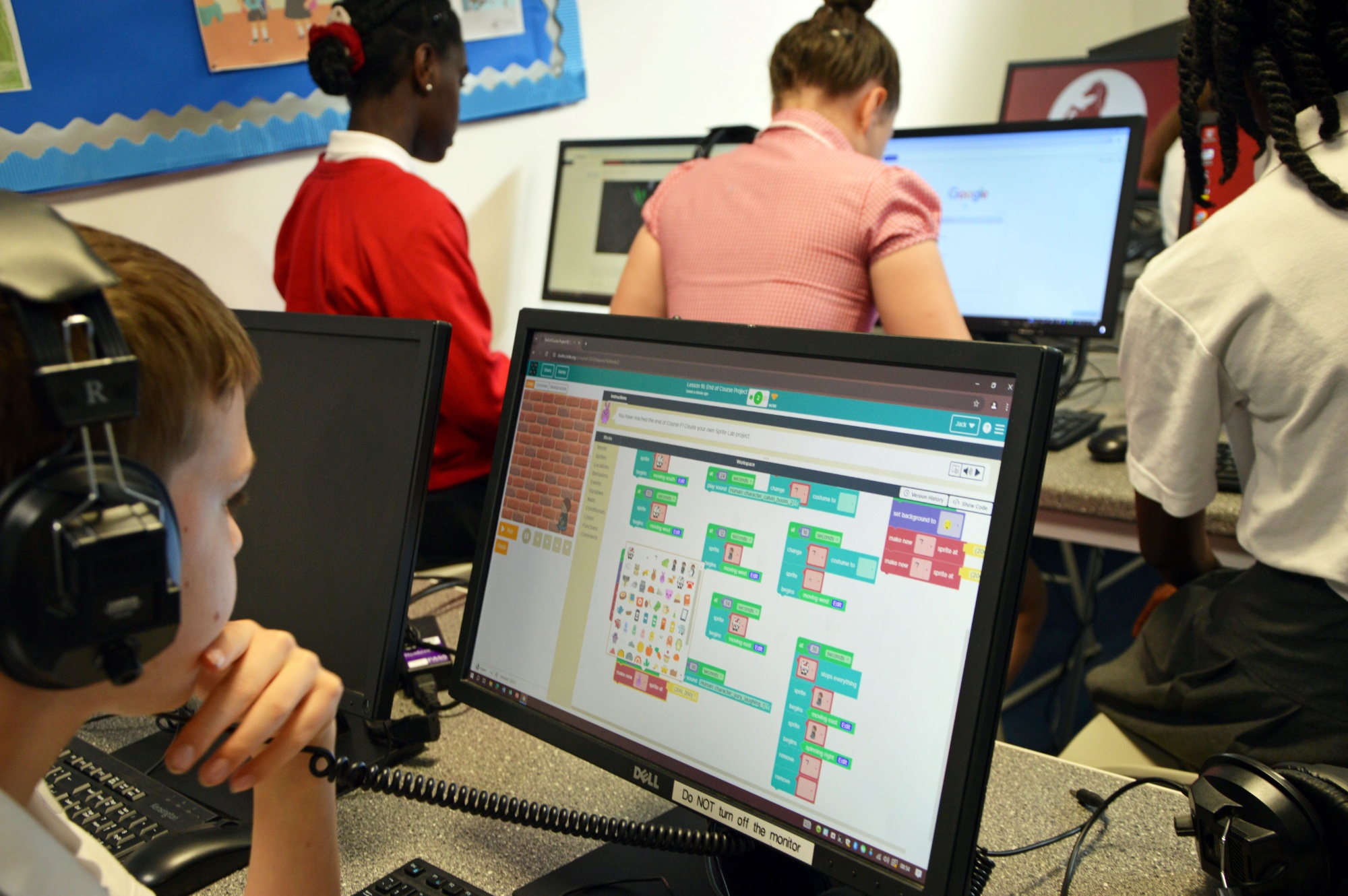Welcome to Wildridings Primary School!
Online Safety
At Wildridings Primary School, Online safety is a top priority, and we take it very seriously. In an age where technology is increasingly accessible, it is vital that all children understand how to stay safe online and use technology responsibly, both in school and at home. We aim to empower our pupils with the knowledge and skills to navigate the digital world safely and confidently.
Through a structured and comprehensive approach to Online safety, children are taught how to use the internet and other technologies responsibly. Our lessons focus on key areas such as protecting personal information, being critical of online content, and knowing what to do if they encounter something that makes them feel uncomfortable. We also ensure that students understand the importance of respectful online behaviour, promoting positive digital citizenship.
Online Safety education is embedded into our curriculum through weekly Computing lessons for all year groups from Year 1 to Year 6. We also celebrate key events such as Kindness Week, (Anti-Bullying Week) and Internet Safety Week to further reinforce the importance of staying safe online.
At Wildridings, we want our children to feel secure in their digital interactions, and we provide the tools and knowledge they need to stay safe and make informed decisions when using technology.
Online Safety - The SMART Rules
At Wildridings Primary School, we teach our children how to stay safe online using the SMART approach. These simple rules help guide them in making safe and responsible choices while using technology.
S - Safe
Always be careful about what personal information you share online. Never give out your address, phone number, email, passwords, or any other private details when chatting or posting online. Stay safe by keeping this information to yourself.
M - Meet
Meeting someone you've only spoken to online can be dangerous. You should never arrange to meet someone from the internet without your parent or carer’s permission, and even then, always with a trusted adult accompanying you. Remember, people online can be strangers, even if you've been talking to them for a while.
A - Accepting
Never accept emails, messages, files, or links from people you don’t know. These could contain viruses, harmful content, or unpleasant messages. Always be cautious about what you accept online.
R - Reliable
Not everything you see online is true. People can post information or pretend to be someone they’re not. Before trusting or sharing anything you find online, make sure to check its reliability by looking at other trusted websites, asking a teacher, or speaking to an adult.
T - Tell
If you ever feel uncomfortable, upset, or worried by something you see or experience online, tell a parent, carer, or another trusted adult. If you or someone you know is being bullied online, it's important to speak up and get help right away.
By following the SMART rules, our children can enjoy the benefits of technology while staying safe and secure.

Useful Links
- Bracknell Forest Local Safeguarding Children Board – www.bflscb.org.uk
- Berkshire Child Protection Procedures - www.berks.proceduresonline.com
- Advice for parents and carers -www.safenetwork.org.uk/parents_and_carers
- How to talk to children about personal safety - www.nspcc.org.uk/keeping-children-safe/underwear-rule
- Think You Know Website - www.thinkuknow.co.uk
- Child Exploitation and Online Protection Website - www.ceop.police.uk/safety-centre
